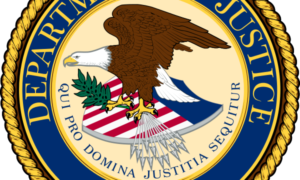News Podcast – News From Gloucester Below – Weather – Video of the Day
Unemployment claims jump in Massachusetts; Cape Ann Savings Bank open for business (in Rockport and online); Governor Baker says state needs supplies and would like school to resume this year; Anna Jacques Hospital seeks protective equipment donations; Revere senior home hit by COVID-19; Great Teddy Bear Hunt in Gloucester, Great Lobster Hunt in Essex
North Shore Today newscast with Bill Newell and Rick Moore
Weather Today – Maybe as high as 60 and Sunny
City of Gloucester Provides Guidance to Help Manage Stress and Anxiety Surrounding COVID-19 Social Distancing and Isolation
GLOUCESTER — Mayor Sefatia Romeo Theken, Public Health Director Karin Carroll and Emergency Management Director and Assistant Fire Chief Joe Aiello would like to share tips to help residents alleviate their stress and panic surrounding the novel coronavirus (COVID-19) while practicing social distancing.
The COVID-19 outbreak and fear of becoming ill can cause stress and panic for people. The stress of losing work and having to constantly provide attention to likely confused children who do not understand the concept of social distancing can add serious stress for parents and children alike.
“We understand this is a time of great uncertainty. Social distancing is a very hard concept but it continues to be the most important precaution against COVID-19,” Mayor Romeo Theken said. “We hope you will read and follow some of the great information provided by local, state, and federal experts. We need to all take care of ourselves. We can’t take care of others if we don’t take care of ourselves.”
According to the Centers for Disease Control and Prevention (CDC) there are many ways to manage anxiety and stress as a result of the situation:
Share the facts about COVID-19 to understand the actual risk to yourself and other individuals. When you share accurate information about COVID-19 you can help make people feel less stressed and allow you to connect with them. Avoid posting or re-posting unverified information, claims, bogus medical information or conspiracy theories, as it only works to heighten emotions
Take breaks from listening, watching and reading the news.
Tend to your body. Stretch, mediate and take deep breaths. Try to eat well-balanced meals, get plenty of sleep and avoid alcohol and drugs.
Try to do other activities that are enjoyable.
Talk with people you trust about your concerns and how you are feeling.
Reassure children and teens that they are safe and that it is okay if they feel upset or stressed.
Be a role model to children and teens. Connect with friends and families while abiding to social distancing standards, including the use of video calling services like FaceTime.
Local Behavioral Health Resources
Children’s Friend and Family Services, a division of the Justice Resource Initiative (JRI) is fully operational and is accepting referrals and continuing to see patients via telehealth resources. They accept MassHealth. They can be reached at 978-283-7198.
Beth Israel Lahey Health Behavioral Services is also offering all services using telehealth Community Service Agency, In Home Therapy, and Outpatient.
Substance Use and Mental Health Crisis Resources
The Substance Abuse and Mental Health Services Administration (SAMHSA) offers a Disaster Distress Helpline to provide 24/7, 365-day-a-year crisis counseling and support to people.
Call 800-985-5990 to connect with trained crisis counselors, 24/7
Text with a live counselor via SMS, text ‘TalkWithUs” to 66746.
Text “Hablanos” for Spanish at 66746.
To learn more on how to cope with stress and anxiety, go to the CDC website, or the SAMHSA website.
The National Institute on Drug Abuse has also created a blog post about resources and implications of the COVID-19 crisis on substance use disorders.
Additionally, Mass.gov has great resources available, including access to virtual AA meetings, and Boston Medical Center recently published a website dedicated to recovery resources in the COVID-19 epidemic.
Children and COVID-19
The Substance Abuse and Mental Health Services Administration offers the following guidance for parents and caregivers during infectious disease outbreaks:
PRESCHOOL CHILDREN, 0–5 YEARS OLD
Very young children may express anxiety and stress by going back to old habits including thumb sucking. They may fear sickness, strangers, darkness or monsters. It is fairly common for preschool children to become clingy with a parent, caregiver, or teacher or to want to stay in a place where they feel safe. They may express their understanding of the outbreak repeatedly in their play or tell exaggerated stories about it. Some children’s eating and sleeping habits may change. They also may have aches and pains that cannot be explained. Other symptoms to watch for are aggressive or withdrawn behavior, hyperactivity, speech difficulties, and disobedience.
Infants and Toddlers, 0–2 years old, cannot understand that something bad in the world is happening, but they know when their caregiver is upset. They may start to show the same emotions as their caregivers, or they may act differently, like crying for no reason or withdrawing from people and not playing with their toys.
Children, 3–5 years old, may be able to understand the effects of an outbreak. If they
are very upset by news of the outbreak, they may have trouble adjusting to change and
loss. They may depend on the adults around them to help them feel better.
Youth and Adolescents, 11–19 years old, go through a lot of physical and emotional
changes because of their developmental stage. So it may be even harder for them to cope with the anxiety that may be associated with hearing and reading news of an infectious disease outbreak. Older teens may deny their reactions to themselves and their caregivers. They may respond with a routine “I’m okay” or even silence when they are upset. Or they may complain about physical aches or pains because they cannot identify what is really bothering them emotionally. They may also experience some physical symptoms because of anxiety about the outbreak. Some may start arguments at home and/or at school, resisting any structure or authority. They also may engage in risky behaviors such as using alcohol or drugs.
The Partnership for Drug-Free Kids also has a COVID-19 page up with resources including its free and confidential helpline. Parents can text 55753 or call 855-378-4373 for help with youth substance use.
For more information, visit the City of Gloucester Coronavirus website or visit CDC’s website here or the DPH’s website here.
Downloadable Resources/Further Reading
National Alliance on Mental Illness COIVID-19 resources for citizens and business owners
Mental Health and Psychosocial Considerations During COVID-19 Outbreak
SAMHSA: Taking Care of Your Behavioral Health
SAMHSA: Talking With Children: Tips for Caregivers, Parents, and Teachers During Infectious Disease Outbreaks
|











